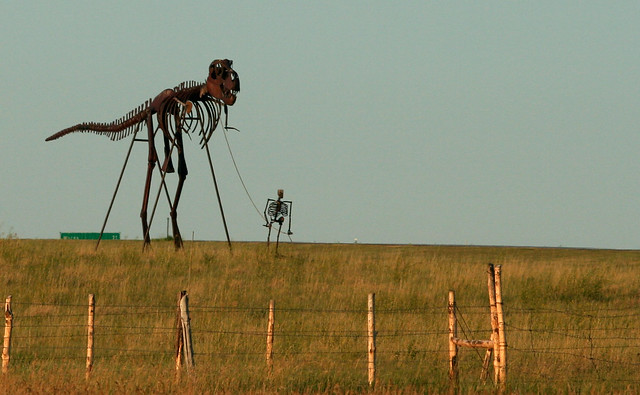When we think, we make categories – that is how we make things thinkable. We sort reality into orders and hierarchies, from the lowest angels to the highest. This is obviously useful, because everyone does it. In the west, we trace the tradition back to Aristotle.
All living things are categorised, in order to make the dazzling, teeming variety of life comprehensible. Scientific taxonomies run from the general to the particular: human beings, for example, are in the domain of the Eukaryote, the kingdom of Animalia, the phylum of Chordata, the class of Mammalia, the order of Primates, the family of Hominidae and the genus of Homo, hence our species name, Homo sapiens – ‘wise man’.
These classifications were sketched out by Swedish botanist Carl Linnaeus in 1758, in his magisterial Systema Naturae. Just as alchemy is the forgotten sister to Isaac Newton’s physical observations, European fantasies about race went hand in hand with Linnaeus’ taxonomy. In his book Strange Fruit: Why Both Sides Are Wrong in the Race Debate, Kenan Malik outlines how Linnaeus categorised Homo diurnus, ‘men of the day’:
Homo diurnus was, in turn, divided into three species: Homo sapiens, Homo monstrosus and Homo ferus. Homo sapiens – a term that Linnaeus introduced into the famous tenth edition of Systema Naturae – were humans proper. He subdivided Homo sapiens into four ‘varieties’ (though Linnaeus never called them ‘races’), americanus, europaeus, asiaticus and afar, each defined by a mix of observation and prejudice.
Linnaeus’ taxonomy was later ‘refined’ by Johann Friedrich Blumenbach, considered the father of anthropology, who proposed dividing Homo sapiens into five races: Caucasian, Malaysian, Ethiopian, American, and Mongolian.
These eighteenth-century ideas about race, with all their Eurocentric prejudices, are still current, monsters swimming in the depths of scientific discourse that, more and more frequently, rise into the light and show their bloody teeth. It’s not hard to see Linnaeus in the dubious ‘race science’ that is making a popular recurrence.
There are so many examples. First there is A Troublesome Inheritance, in which Nicholas Wade, a former science reporter for the New York Times, restates shibboleths about the essential genetic differences between races. Then there is Nobel Prize-winner James Watson, co-discoverer of the double helix structure of DNA, who has insisted on many occasions that black people are genetically inferior to white people. Or political scientist Charles Murray and psychologist Richard Herrnstein, co-authors of The Bell Curve, who argue for eugenic social policies that discourage poor or black people from having babies.
The problem isn’t categorisation itself. ‘Science potentially allows us to have a rational view of human diversity,’ Malik goes on to say. ‘What is important is not that scientists seek to classify human variety, but the ways in which they do so and the meaning that they read into such categories.’
Back in the day, I barely registered the misogyny in canonical works; I simply negotiated around them, almost without noticing. Like most women, most ‘others’, I had been imagining myself into and around these narratives since I started reading. Of course I wanted to be a hero – but the proper stories, the significant events, the important adventures, always happened to men. These misogynies and their proliferating cousins were part of the ground structure of intellectual existence: in many cases, they were the qualifiers of intellectual seriousness.
I began to hate categories. I used them all the time, and I still use them, because they are useful, but I began to treat them with deep suspicion.
Every morning I scroll through my social media. Every morning I read people arguing against the dehumanisation they face for being black, or LGBTIQ, or disabled, or poor, or a combination of these things. I recognise the mechanisms and techniques of marginalisation because so many of them have happened to me. I recognise some of them because I have used them myself, despite considering myself a good person, as we all like to do.
There are so many ways of determining that a person isn’t fully human, that one person isn’t worthy of the same compassion and regard as another. All these mechanisms are deeply interlocked, each into the other, and sometimes they only serve to reinforce the overarching structure: the fight for women’s rights reinforces racism, the fight against ableism reinforces sexism and so on. They are embedded in the very syntax of speech and writing, in this language of conquest and assimilation, my native language, English.
Reasons I love English: because it is a language that combines the tactile hardness of Germanic languages with the sensuality of its Latinate roots. As a friend once said to me: the reason why the French are bad at rock music is because they don’t have a word like ‘splash’. The English language has edges, hard consonants, the ability to behave like stone. But it’s also fluid, lyric; you can make it as flexible as silk. You can weave with it, chisel with it, distort it, make it bounce, stretch it out, clip it short, make it shout or whisper. It’s a language of deep, tactile sensuality.
English has these qualities because it’s impure. And it’s impure because of empires: the Romans, the Anglo-Saxons, the Normans. Then there was the
British Empire, the largest of all the empires, spreading out over almost a quarter of the globe, and wherever the English went, they stole words and brought them back home.
Language. A key to freedom. A prison.
Image: Ashleigh Bennett / Flickr
Read the rest of Overland 234
If you enjoyed this piece, buy the issue




